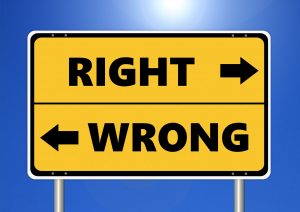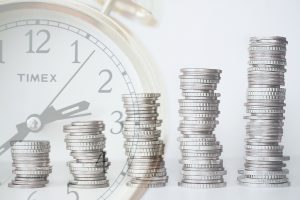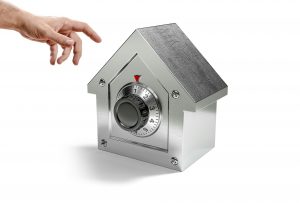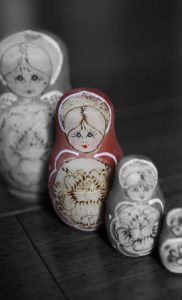President Henry, who owns and manages the company Dash, asked Mr. Inamori* the following three questions.
- Tax advisor encouraged us to make business loss, to reduce the share price, so that we can minimize the inheritance tax, should we follow his advice?
- Is that justified that company assets are liquidated to pay inheritance tax ?
- The company share has to be equally split to siblings?
- Can the “B to B” business model be changed to “B to C” by becoming a competitor of our clients?

Mr. Inamori commented as follows
1 Pursue high growth of your company by costing high inheritance tax

This is the dilemma that most of Japanese family businesses have been facing. The bigger you make your business, the more inheritance tax you should pay to the state. I can feel your father. On the business growth, he hesitated to pursue such wonderful growth. Look, as you demonstrated, the corporate profit has not been growing for the past several years, this is exactly the reflection of your father’s subliminal mindset. First he wanted business growth but as time passed, he got worried about the high inheritance tax to be paid or to be burdened on his beloved ones.
Listen, you can’t pursue the both: business growth and low inheritance tax. So, what you have to do is make up your mind: get prepared to pay the tax according to your corporate’s share price. You can arrange your personal finance to pay the tax, then gradually pay back to the bank by increasing your salary or dividend. This is the fair and right approach to deal with this issue.
I had never thought about paying tax until I joined Inamori’s workshop. Like many other Japanese, I was unintentionally thinking of how to minimize the tax burden. However, I fully understand that the fundamental value of my business is based on the “Japan credit”. I have got a lot of trust simply because I am Japanese. We owe a lot to my ancestors who struggled in the world to establish the trust toward Japan. I have been using such credit without any cost therefore, instead, I have to pay at least the credit fee to the nation.
My husband, a Brazilian, through his school days, had been taught how wonderful Japanese people are. He said Japanese are intelligent, diligent, hard workers, polite and humble people. Thus, when we met in Brazil 15 years ago, he spontaneously respected me. Japanese credit also made my life more wonderful. As I have been enjoying the benefit, I simply think that it looks natural for me to pay back some of the benefits that I have got so far.
2 Is that justified that company assets are liquidated to pay inheritance tax ?

I know you felt uncomfortable when the tax advisor told you that you should pay the inheritance tax via some arrangement from your corporate asset. I think your feeling was correct and I admire you to have such a sense of justice.
You should borrow the money from the bank under your name, then pay the inheritance tax as your individual status. The debt is going to gradually be paid off by your benefits as the family and corporate head. Take the correct and right approach, this will ultimately be the shortcut to your business goal.
3 The share has to be solely inherited to the business leader.

Your siblings may have to receive the equivalent amount from you as the compensation for withdrawing their involvement from the business. Splitting stocks among siblings looks fair superficially however, it may involve a lot of unforeseeable issues. Most siblings have their spouses, and each of them may have an intention to be involved in your family business, regardless of how you treat them. This is the fact, and there are a lot of cases in Japan, that such share splitting causes an internal collapse of a company.
4 Changing the business model and getting into B to C by becoming a competitor of your clients?

I don’t think you should take this approach, as your grandfather said. Mr. Inamori advised Henry.
I simply think that this doesn’t look an easy task, seems to be really hard and less likely for success. Let me tell you an example of Kyocera. Once before, most semiconductor packages were produced by Kyoceara and many of Silicon Valley companies were our clients. Dr. Robert Noyce, he eventually became the founder of Intel, one day came to me and asked whether or not Kyocera intends to start a semiconductor production business, as that would have been a huge threat to them. I told Noyce “No, we have no intention to do that. We strictly keep our position as “the part provider”, remaining your servant. ”
Mr. Inamori responded as above.
The leader’s mindset and desire indicate where the company goes. If Mr.Inamori desired to be the number one in the world, he would have tapped that market without any hesitation, could have swallowed many companies, and consequently created a lot of conflicts. That giant company could have grown to some extent by swallowing many competitors, who used to be the former customers, and by involving many internal conflicts. The bigger your company gets, the more internal issues you may have. This can be seen not only in corporate but also nations as well…
Mr. Inamori’s objective has always been clear, to fulfill their staffs, and contribute to world growth. Given those ultimate objectives, Kyocera’s position had always been clear: what is the long term prosperity? What drives most technological innovation ? He also believes that the giver should be rewarded most over the middle to long-term, almost of perpetuity.
As he always reiterates the results have ultimately been driven by our mindset.
Further queries or doubts, please email to ytomizuka@abrilsjp.com
News Letter subscription is here
- Tags
- Family Business, inheritance, Share, succession, tax











